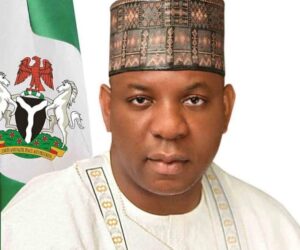When the world’s tectonic plates shift, those closest to the fault lines either fall into the cracks or learn to balance on moving ground. Africa today is firmly on that fault line of global change, not alone, but alongside partners navigating the same tremors. From Washington’s “trade not aid” rhetoric to China’s expanding zero-tariff access, from the reshaping of volunteer diplomacy to the sobering rise of modern slavery, the signals are unmistakable; the traditional pathways of development engagement are giving way. What matters now is how Africa and the world choose to build new ones together.
“Without deliberate African trade-policy thinking, harmonised tariffs, industrial scaling, and regional value chains, Africa risks being a taker of terms rather than a shaper of markets.”
The illusion of permanence
For decades, African nations have engaged the world through frameworks that felt almost permanent. The African Growth and Opportunity Act (AGOA), a flagship U.S. trade pact, has anchored trade for over two decades. The Peace Corps has operated for more than 60 years. Today, both face uncertain futures. AGOA is set to expire next month without signs of renewal, while the Peace Corps is undergoing leadership changes that could affect country programmes. These are not bureaucratic shifts; they are reminders that no platform is guaranteed forever and that both Africa and its global partners must be intentional about shaping what comes next.
A “trade, not aid” paradox
The language of “trade, not aid” is not new, but today feels different. It comes alongside the dismantling of USAID, reduced funding flows, and the erosion of traditional development finance tools. At the same time, global private sector capital, from mining corridors to fintech, is reshaping influence. Here is the paradox: Africa does not need aid dependency, but nor does it need transactional trade that overlooks long-term equity. What Africa requires is partnership infrastructure and frameworks for dignified, sustainable, and mutually reinforcing trade. The Lobito Corridor, linking Angola’s coast with copper and cobalt reserves in Zambia and the DRC, offers a glimpse of this possibility: broad coalitions, industrial anchors, and regional integration. It shows what can happen when governments, investors, and communities align their strengths, and it is precisely this spirit of shared design that must guide the next chapter of Africa’s engagement with the world.
But let’s be honest: one corridor is not a continental strategy. Without deliberate African trade-policy thinking, harmonised tariffs, industrial scaling, and regional value chains, Africa risks being a taker of terms rather than a shaper of markets.
The unfinished fight for dignity
Beyond trade, there is the sobering fact that modern slavery is at record levels, with nearly 50 million people in forced labour, child marriage, and exploitation. This is not a “somewhere else” problem. The supply chains we rely on, the investments we applaud, and even informal economies in our backyards are touched by it. The lesson is not to shame but to shift. As stories from Somaliland and the DRC remind us, the most enduring solutions come when survivors and local communities are funded directly. If global capital is serious about ending exploitation, then direct financing to local actors must become the norm, not the exception. Local actors are not only community groups; they also include African-rooted institutions with the systems to partner globally while staying anchored locally. Organisations like eHealth Africa, headquartered in Nigeria and working across the continent, embody this dual role, close enough to understand needs, yet able to deliver at scale. It is this kind of proximity and reach that makes financing local actors both possible and powerful.
This logic is consistent with the broader development debate; local ownership is not charity, it is strategy.
The private sector pivot
Meanwhile, the next generation of global development professionals faces a blocked pipeline. Traditional volunteerism and internships are shrinking; AI is rewriting entry-level roles. And while Northern graduates worry about fewer overseas opportunities, Africa’s own talent pool is deep, proximate, and ready.
This is Africa’s moment to recast the private sector not as an adjunct to aid, but as a co-author of development. Telcos embedding health tools, fintechs expanding financial access, and agritechs reducing waste – these are not side projects; they are system changers. With the right investment vehicles, Africa can shape how private capital scales impact.
A collaborative path forward
So, what must Africa and her partners do with all these moving pieces? Three commitments stand out:
Invest in Africa’s policy infrastructure. Trade, health data, and industrial strategies must be authored here first. External partnerships should amplify, not replace, this groundwork.
Localise capital flows. Whether in fighting slavery or scaling digital health, funds must bypass heavy intermediaries and empower proximate innovators.
Shape global conversations as peers. Africa’s voice must be present not only in regional forums but also in global rooms where future rules are drafted. That requires thought leadership, coalition-building, and relentless storytelling rooted in evidence.
Balancing on moving ground
We are entering a world where continuity is no longer guaranteed. What is certain is flux in policy, capital, and talent flows. But Africa has navigated flux before. Our resilience is not in question; our readiness to lead is. The challenge is not AGOA’s renewal or the Peace Corps’ footprint. It is whether Africa can balance on moving ground by anchoring itself in strategy, solidarity, and self-belief.
Because here’s the truth: the global order may be shifting, but balance belongs to those who prepare for the tremors. And Africa must not simply prepare; it must lead.
Ota Akhigbe is Director of Partnerships and Programmes at eHealth Africa, a Pan-African strategist and columnist on systems innovation and locally led development. She writes weekly for BusinessDay on the intersection of global shifts and Africa’s future.









